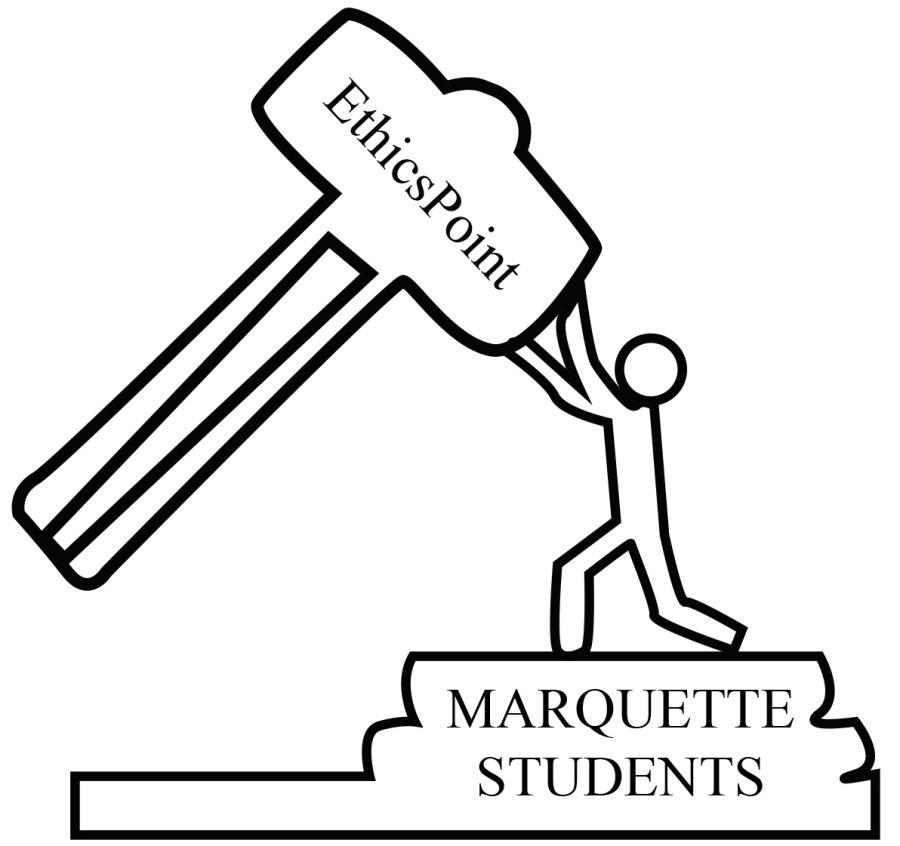The university is using a university-specific website and hotline number through EthicsPoint, which it has worked with since 2006, this year. The site allows members of the university, or anyone who has access to the site, to register misconduct claims of any sort, like academic dishonesty and sexual harassment, under the guise of anonymity.
As we can see from this year’s overhaul of sexual misconduct training for employees, the Marquette administration believes students and staff are responsible for reporting any misconduct. Working with EthicsPoint provides another avenue for individuals to feel free to speak up without facing unwanted repercussions.
The site maintains a positive purpose, yet it is not completely clear whether this will be an effective tool in reporting. The basis of anonymity could result in false or malicious reports and misuse of a critical resource. The goal of honest reporting may fall by the wayside.
Anonymity allows us to say whatever we feel without assigning ourselves to the consequences. We can come forward with information, fact or opinion based, without being held accountable for any positive or negative ramifications. People tend to abuse this positional power through the Internet, and EthicsPoint could be just another forum for people to air their grievances.
Another Marquette partner site, Course Evaluation Manager, relies on the anonymity quotient to encourage truthful and constructive feedback for instructors. Staff evaluations are used to determine tenure and salary while providing an outlet for students to give professors their view. However, the site is not well utilized by students as it is not a requirement to submit course evaluations and, due to anonymity, people are not held accountable for what they do or do not say. The result is the majority of students do not participate, and those who do often use it as a way to give instructors a piece of their mind at the end of the semester.
In the past there was a student proposal to Marquette Student Government for aggregate teacher evaluations to be published at the end of each year. This could be a good way for students and faculty to understand the importance of the evaluation process though the university rejected it outright because not enough people participate.
Clearly some of these issues result from anonymity’s implementation. When you can say anything, some people may just do that or not say anything at all.
Unfortunately, we cannot mandate reporting without concealing one’s identity from everyone and expect reporters to just deal with the repercussions that could follow. Confidentiality and being able to protect one’s identity can be important factors when one considers reporting serious cases. Perhaps the manner in which we approach being anonymous should change in order for these sites to do their job on campus.
EthicsPoint can be effective only when people submit honest reports and seriously consider the gravity of what they are reporting and its possible implications. Being anonymous may allow us to not be held immediately accountable for what we say, but that does not mean we should be ignorant to possible consequences.
Anonymous reporting, with both EthicsPoint and Course Evaluation Manager, is a serious matter, and reporters should understand the weight of various reports. For cases and evaluations to be representative of facts and lead to the proper recourse, students as well as university employees should be aware of how their actions may have great implications, without relying on their anonymity to exempt them from accountability.
University affiliates should embrace the honesty granted in anonymity while considering its potential drawbacks as well.







